- Home
- entertainment
- news
- The 22 best Taylor Swift songs you probably missed if you're only listening to her radio hits
The 22 best Taylor Swift songs you probably missed if you're only listening to her radio hits
Callie Ahlgrim,Kim Renfro

- Taylor Swift has been an incredible songwriter since she was a teenager.
- Many of her best songs weren't released as singles, nor picked up on by mainstream music listeners.
"Cold As You" is one of the best songs from Swift's debut era.

Swift's self-titled debut album came out in 2006 and pop-country fans immediately fell in love with her sweet tales of romance and heartache in radio hits like "Tim McGraw" and "Teardrops On My Guitar."
But the fifth track, "Cold As You," holds up as one of the first indications that her songwriting talents shouldn't be underestimated. — Kim Renfro
Highlight verse:
"The Other Side of the Door" boasts one of Swift's most skillful outros.

Originally released as track six on "Fearless Platinum Edition" in 2008, "The Other Side of the Door" didn't attract much attention in the fandom until "Fearless (Taylor's Version)" was unveiled 13 years later.
The rerecorded version is faithful to the original, but something about Swift's mature vocals gave the track a new sense of gravity. It has emerged as one of the most magnetic and well-structured moments on "Fearless," with a killer outro rivaled only by the fan-favorite "Folklore" cut "August." — Callie Ahlgrim
Highlight verse:
"Haunted" is an emo-inspired highlight on "Speak Now."

"Haunted" sounds like it could've been a single from "The Twilight Saga: New Moon" soundtrack, and I mean that in the best possible way.
This is Swift at her most tortured and dramatic, backed by orchestral strings and a crunchy electric guitar that recall the best of emo-pop bands like Taking Back Sunday and Paramore. — CA
Highlight verse:
"Treacherous" is an overlooked gem on "Red."

Of all the beloved cuts and vault tracks on "Red (Taylor's Version)," for some reason, "Treacherous" always seems to get glossed over.
It belongs alongside "All Too Well" and "Holy Ground" as the most emotional, mesmeric moments on the album, painting a vivid scene of love that's doomed from the start — and a girl who's just reckless enough to try it anyway.
Swift sees the fiery wreckage in the distance and still keeps her foot on the pedal. — CA
Highlight verse:
"Clean" is the most powerful album closer in Swift's catalog.

"Clean" was cowritten and produced by Imogen Heap, the brilliant "Hide and Seek" singer who might be an actual witch. That may explain why it's one of the most spellbinding songs in Swift's vast catalog.
A swirl of twinkling synths and soothing melodies, "Clean" is the perfect closing track for "1989," an album that follows Swift as she struggles to recover from an on-and-off romance. She employs a cascade of metaphors and similes to capture the unique experience of heartbreak.
The title is a particularly brilliant double entendre, with Swift comparing her healing process to both rain and sobriety. — CA
Highlight verse:
"Wonderland" is a "1989" deluxe track that could've easily been a single.

One deluxe track from the "1989" era did get the single treatment ("New Romantics"), and deservedly so. But "Wonderland" would've also been up to the task, armed with booming synths and sticky melodies that were emblematic of Swift's biggest pop era.
"Wonderland" also has the added benefit of a well-executed metaphor, inspired by Lewis Carroll's classic novel "Alice's Adventures in Wonderland." Swift casts herself and her muse as heroic outsiders, "too in love to think straight" and driven to madness by the intensity of their relationship. — CA
Highlight verse:
"Dress" is one of Swift's sexiest songs, but it was tucked away on the back half of "Reputation."
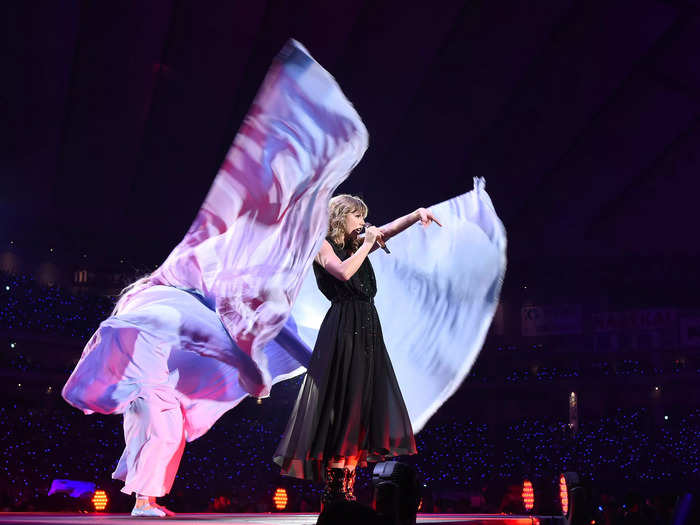
One of the most memorable singles from the 2017 album "Reputation" was "Delicate," an intimate song about the early stages of a crush and a new relationship.
In "Dress," the song many people might have missed, Swift turns the dial up on this new steamy romance. She sings about "secret moments" shared with a new lover when they're hiding their relationship from the public eye and the sexual tension built up by the secrecy. — KR
Highlight verse:
"The Archer" belies a darker theme underneath the shiny exterior of "Lover."

Swift's 2019 album "Lover" was largely marketed around the eponymous track and more classic pop songs like "You Need to Calm Down," "Me!" and "The Man."
But "The Archer" (another of Swift's famous track-five gems) is a tense peek inside Swift's internal monologues and self-examination. The electronic drums gently build up but never fully release, contrasting with the soft tone of Swift's voice.
The whole song feels like she's comforting her inner-self and chastising her reflection at the same time, all while trying to wrap her arms around something more solid in the present. — KR
Highlight verse:
"Afterglow" sounds like an intimate epilogue to "The Archer" as Swift sings about her culpability in a lovers' quarrel.

If you love "The Archer" (which you should) then "Afterglow" will draw you in with Swift's ruminations on how she lashed out at her partner.
So many of Swift's greatest hits are written from the perspective of a woman celebrating love, lamenting a lost relationship, or dwelling on the wrongs she experienced at the hands of a partner.
But with "Afterglow," Swift flips the script and focused on herself, acknowledging the hurt she can inflict on an undeserving loved one. "Afterglow" is an admission of anxieties and wrongdoings, while hoping her muse will stay around for the post-argument love. — KR
Highlight verse:
"Daylight" completes this great three-song arc on "Lover," where Swift chooses to be defined by what she loves, not her past and current demons.

"Daylight" plays like an epilogue to the "Lover" album, completing Swift's personal arc — from admonishing herself in "The Archer" and "Afterglow" to now looking hopefully into the sunrise, a new chapter in life.
The song is stunning on its own, but even more so when put in conversation with Swift's 2012 album "Red," which was largely inspired by a love that was defined by "intense passion."
"There's something to be proud of about moving on and realizing that real love shines golden like starlight, and doesn't fade or spontaneously combust," she wrote in the liner notes. "Maybe I'll write a whole album about that kind of love if I ever find it."
More than any other song in Swift's catalog, "Daylight" represents evolution and growth, capturing the beauty of a peaceful love without limits, explosions, and conditions. — KR & CA
Highlight verse:
"Seven" is the perfect blend of warmth and melancholy.

"Seven" features Swift's best vocal performance on "Folklore," an album that's full of fluttery falsettos and haunting harmonies.
As soon as the song begins, Swift launches into a whispery high register that sounds both innocent and spooky. She implores us to imagine her on a swing, gliding through the sky in her hometown, long before she "learned civility."
Indeed, Swift's delivery compliments the song's premise, which sees the narrator tackling big feelings and problems with plain-spoken naivety, evoking a child's tendency to say exactly what she's thinking without fear of consequences. — CA
Highlight verse:
"This Is Me Trying" is a devastatingly relatable song about the unseen struggles people experience daily.

In her self-directed documentary about the making of "Folklore," Swift explained the inspiration behind "This Is Me Trying."
"I've been thinking about addiction, and I've been thinking about people who — if they're either suffering through mental illness or they're suffering through addiction, they have an everyday struggle," Swift said. "No one pats them on the back every day, but every day they are actively fighting something."
This song was written and released during the first year of the COVID-19 pandemic and has only become a more acute representation of the mental struggles people are up against in the years since.
Particularly for the generations closest to Swift's own age (Gen X, millennials, Gen-Z), this song encapsulates the crushing weight of struggling through adulthood when it's accompanied by forces like addiction or depression. — KR
Highlight verse:
"Mad Woman" is a song about female rage that hits way harder than Swift's single "The Man."

Another highlight track from "Folklore" is "Mad Woman," a collab between Swift and Aaron Dessner that recreates the simmering frustrations women face in everyday conversation with misogynists.
Swift is in total command of her feminine rage as she sings about the casual cruelty of people who see a woman standing up for herself and dismiss it as "crazy." — KR
Highlight verse:
"Ivy" should have been a hit Swift single — it's a perfect song from her underrated album "Evermore."
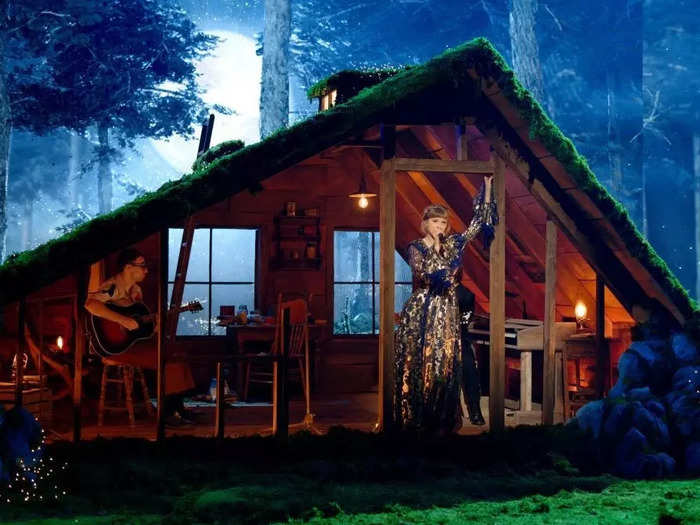
"Evermore" was released just a few months after "Folklore," which means it went largely under-discussed when Swift's first pandemic album swept up awards — including album of the year at the 2021 Grammys. This is a true shame, given that some of Swift's best work yet is on "Evermore."
Among the standout tracks is "Ivy," a romantic and energetic song that, on its face, seems to be a fictional story of a married woman's affair, perhaps inspired by Emily Dickinson and Sue Gilbert.
But the song could also be interpreted as one big analogy for Swift's relationship with Joe Alwyn, and her pre-existing "marriage" to her music career. The "husband" that Swift refers to could be a substitute for the larger public interest in her love life, or the mere existence of her celebrity life that feels like a specter over their private relationship. — KR
Highlight verse:
"Marjorie" is a tear-inducing eulogy of Swift's own grandmother's life and spirit.
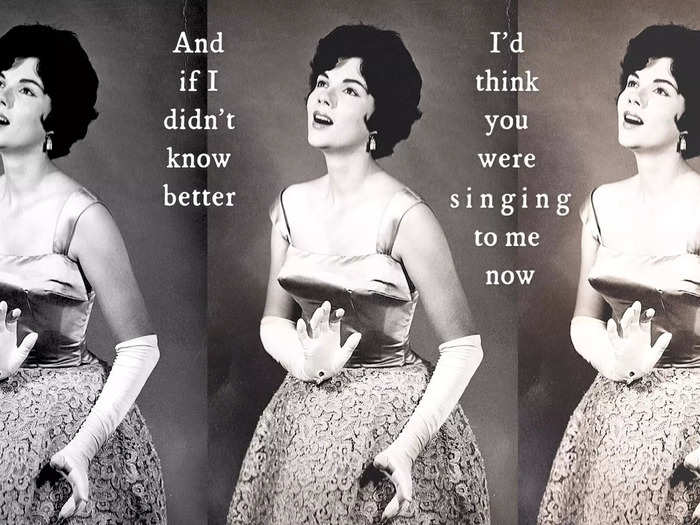
Another collaboration with Dessner, "Marjorie" shows the immense talent Swift has for painting pictures with her words.
The song winds between wise idioms that Swift's late grandmother lived by ("Never be so kind, you forget to be clever / Never be so clever, you forget to be kind") and other cherished memories.
Capturing the bittersweetness found in grief is no small feat, and Swift does it magnificently. — KR
Highlight verse:
"Evermore," featuring Bon Iver, is a perfect song for either staving off seasonal depression or leaning into its gloominess.

Swift cowrote "Evermore" with Alwyn and Bon Iver frontman Justin Vernon. The result is a gorgeous, piano-forward ballad that embodies the stagnation of winter and seasonal depression.
"Evermore" builds into a beautiful and cathartic climax, in which Swift sings that she eventually realized this downturn wouldn't last forever. — KR
Highlight verse:
"Right Where You Left Me" is easy to miss but impossible to forget.

"Right Where You Left Me" was released alongside "It's Time to Go" with the deluxe edition of "Evermore," initially only available on physical copies of the album.
The pair of bonus tracks makes the album feel like a Choose Your Own Adventure saga, offering two very different endings. "It's Time to Go" is the most reassuring option, a celebration of the strength required to leave a person or situation when they hurt you.
But "Right Where You Left Me" is by far the more compelling course. It's a deceptively upbeat track that leans more country than pop, recalling Swift's roots as a bright-eyed Nashville star, writing feverishly about love she hoped to find someday.
The acoustic strums belie the devastation within. Now in her 30s, Swift refuses to give up on a future she once imagined for herself, even when the world — including the person she pines for — moves on without her. It's a song that latches onto you and won't let go, much like a tragic pin collecting dust in her hair. — CA
Highlight verse:
"You're On Your Own, Kid" is an empowering coming-of-age anthem that charts Swift's life from high school to superstardom.

"You're On Your Own, Kid" is a great example of Swift's knack for building twists into her song narratives.
The first two verses could be about any young teen looking for love and adventure and coming into themselves, and then suddenly the sweet nostalgia of growing up breaks the bridge as Swift sings about starving her body and seeking approval in the wrong places.
But then the song title, which seems at first like a dismissal, is revealed to be an affirmation of how the strength you need was inside all along. — KR
Highlight verse:
"Sweet Nothing" is easily the best song on the standard edition of "Midnights."

"Sweet Nothing" follows in the footsteps of Swift's most optimistic, minimalistic ballads like "New Year's Day" and "Daylight," which have historically been used as album closers.
The gleaming song, cowritten by Alywn, should have been the closing track on "Midnights" because it's the lasting flavor Swift deserves to leave.
It's heavy on sweetness and sentimentality without sacrificing an ounce of sincerity, paying tribute to the small pebbles and memories that string together to form a long-term relationship. — CA
Highlight verse:
"The Great War" is a lyrical masterpiece.
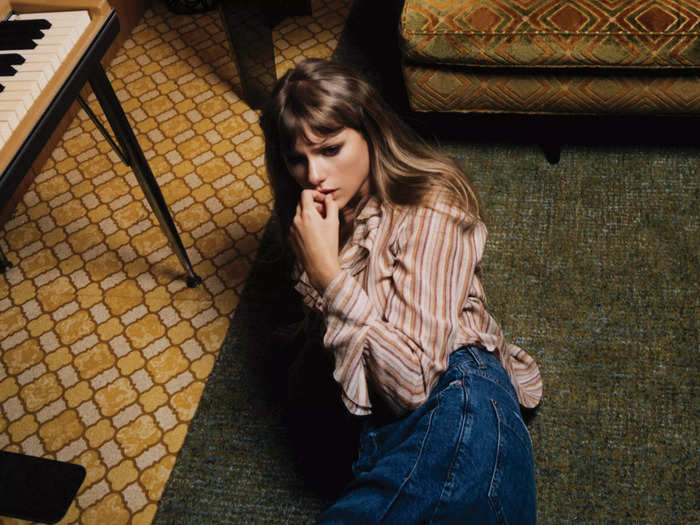
I firmly believe "The Great War" contains the best lyricism on "Midnights" and cannot fathom why Swift opted to leave it off the original tracklist.
The song, cowritten and produced by Dessner, is the first of eight bonus tracks on the album's "3am Edition" and immediately outshines its predecessors with poetry and wisdom. Swift uses floral symbolism and wartime imagery to illustrate a brutal, grueling love that's hard to keep but would hurt more to lose.
The true brilliance of "The Great War" is that it's detailed and evocative but not straightforward; it could be interpreted in a myriad of ways. People online have since associated the song with a variety of fan-favorite love stories in literary fiction, including Katniss and Peeta ("The Hunger Games") and Billy and Camila ("Daisy Jones & The Six"). — CA
Highlight verse:
"Would've, Could've, Should've" is the best song Swift released last year, and it's not even on the official "Midnights" album.
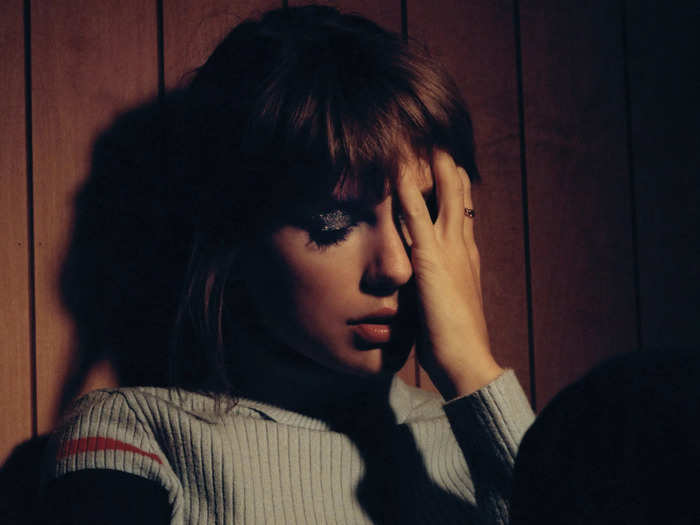
"Would've, Could've, Should've" is one of the bonus tracks on the "3am" digital edition of "Midnights," which is a darn shame because Swift's lyrical talents are on a whole new level with this song.
The track is structured like a sequel to "Dear John," the song Swift (then 19 years old) apparently wrote after her brief romantic relationship with John Mayer (who was 32 at the time). At the end of "Dear John," Swift sings that the famous singer "should've known" better.
In "Would've, Could've, Should've," Swift sings about all the things she would've or could've done differently, but the "should've" remains the older man's responsibility. While "Dear John" was a softer ballad (mimicking in Mayer's own style), this newest song has an intensity to it that buries into your heart. Just watch this compilation of people reacting to it by bursting into tears and you'll get it. — KR
Highlight verse:
"Dear Reader" is another bonus track from "Midnights," perfectly living up to the album's concept of peering into Swift's late-night psyche.

One of the most rewarding things about listening (relistening) to the deep cuts of Swift's albums is the way fans get the sense that she's speaking directly to them with threads of themes or characters.
In "Dear Reader," Swift cuts right to the quick, addressing her "reader" with hard-won life lessons and confessions alike. — KR
Highlight verse:
Popular Right Now
Popular Keywords
Advertisement